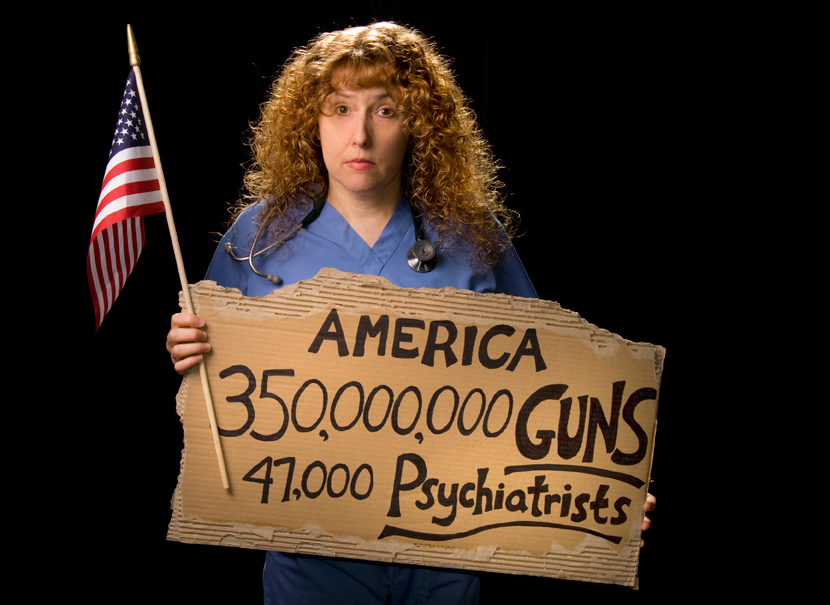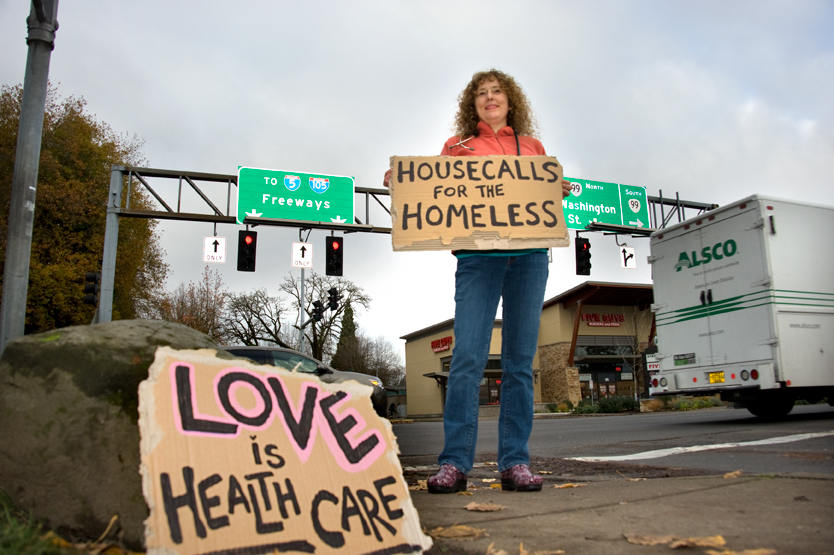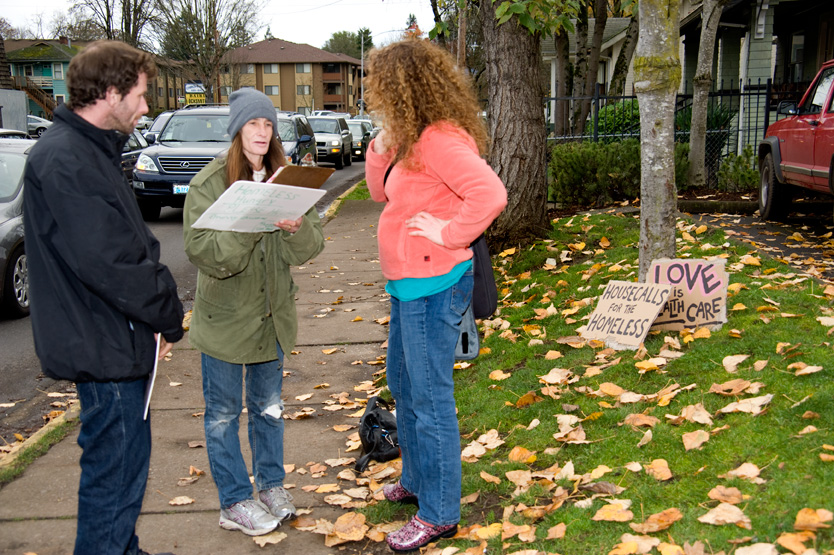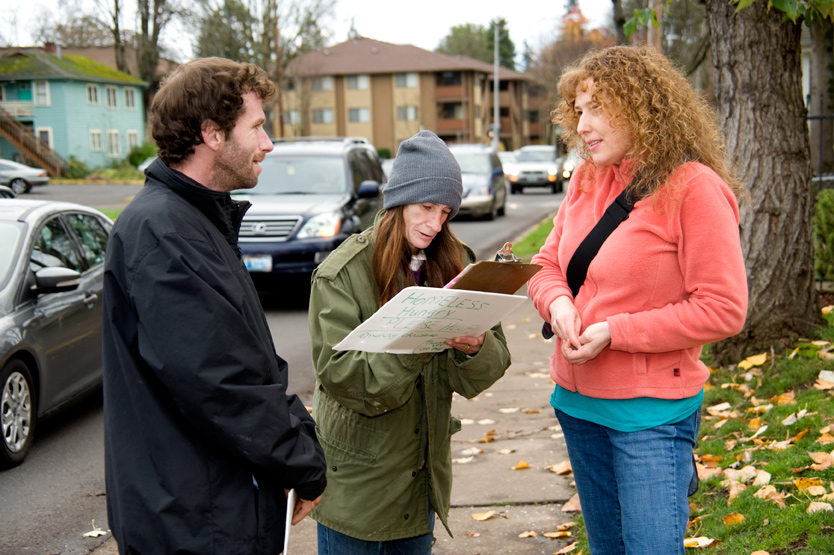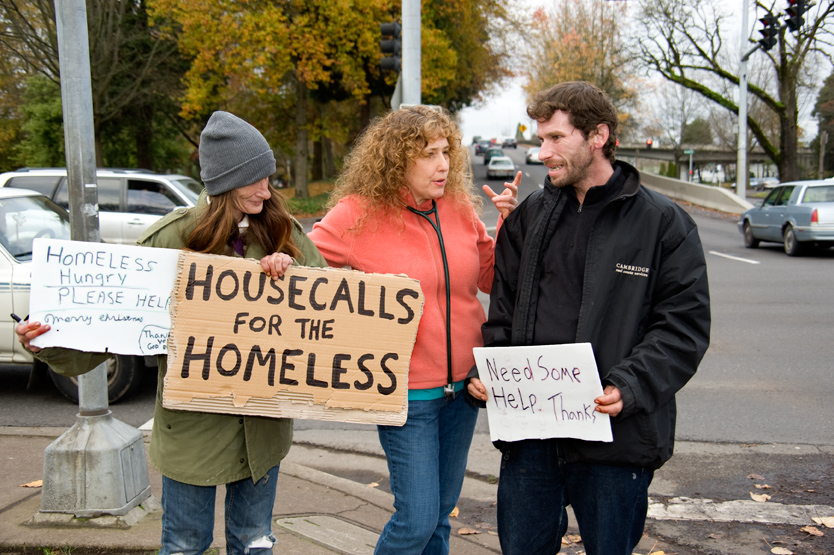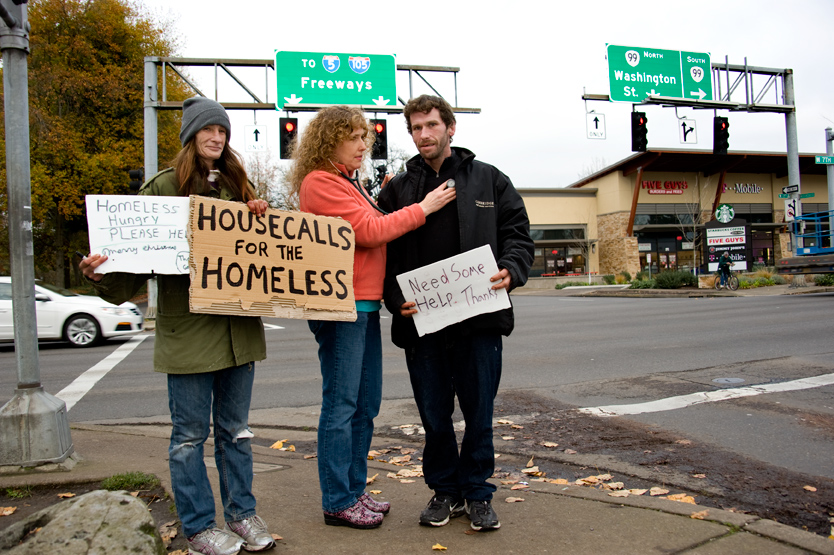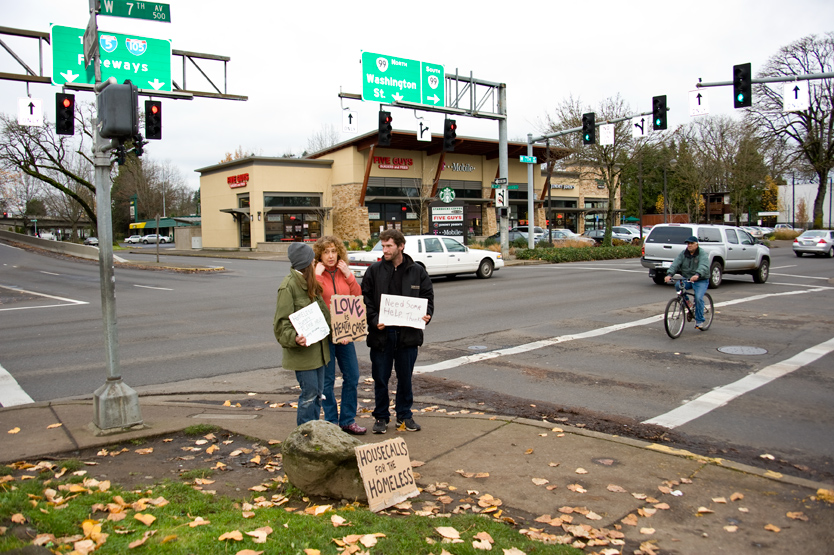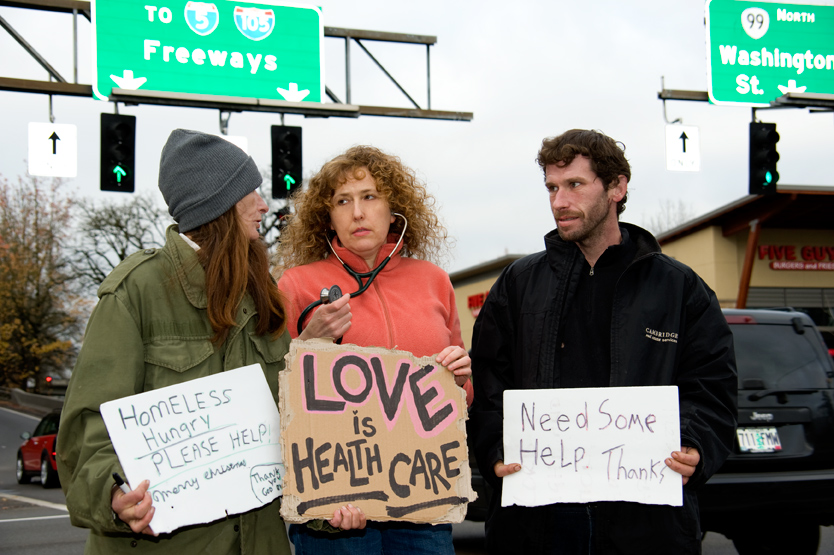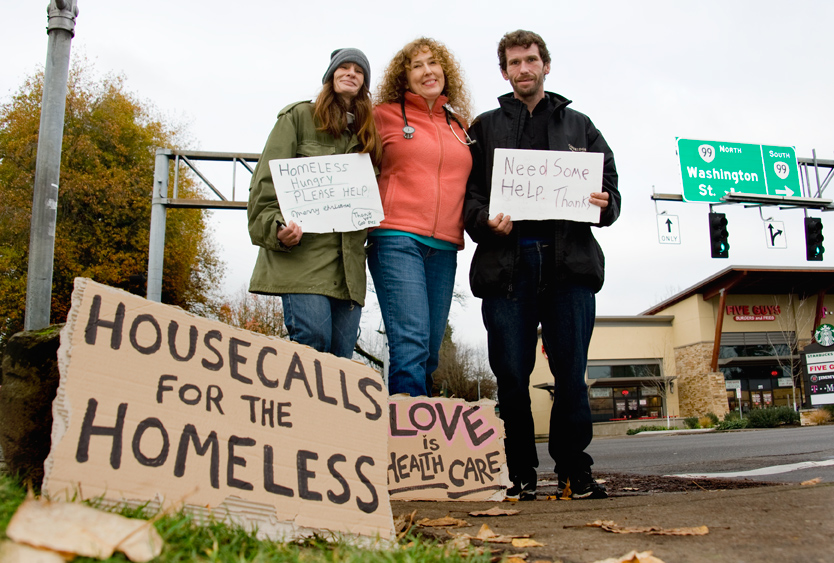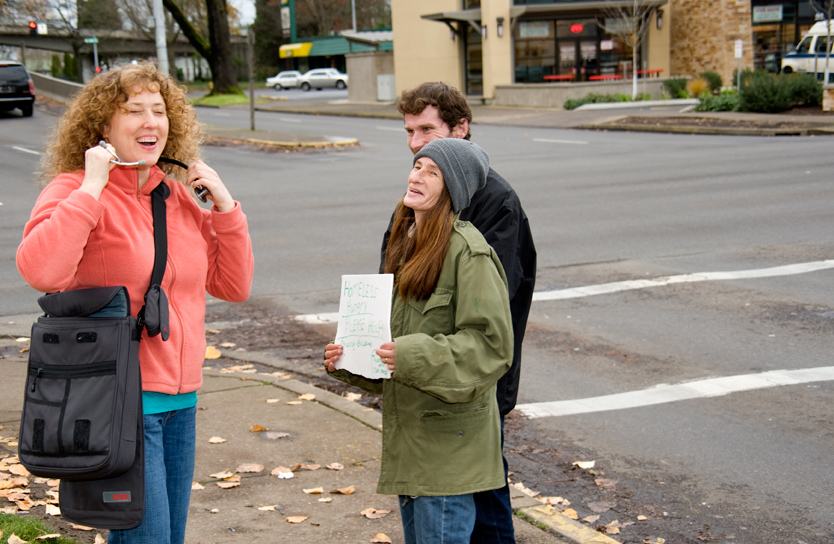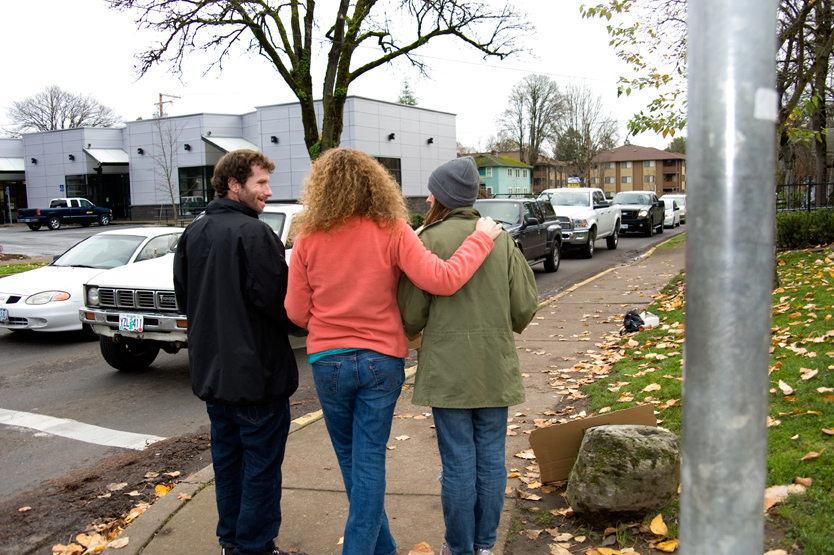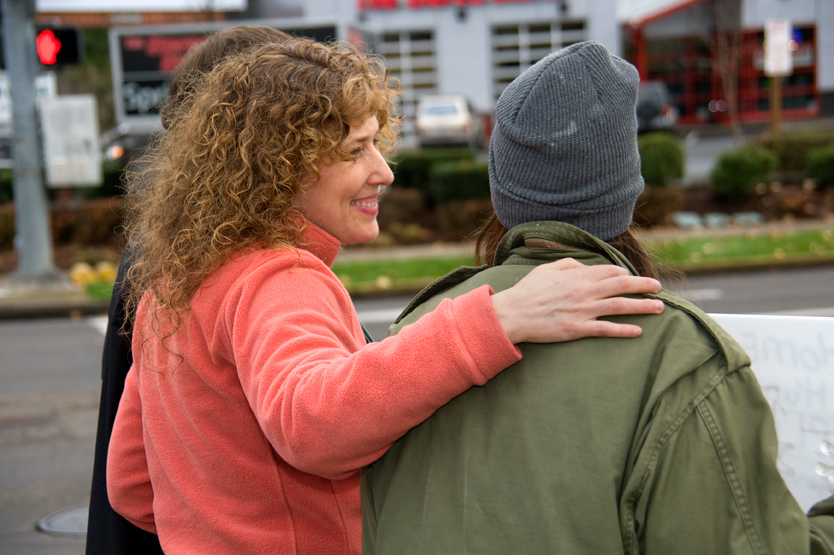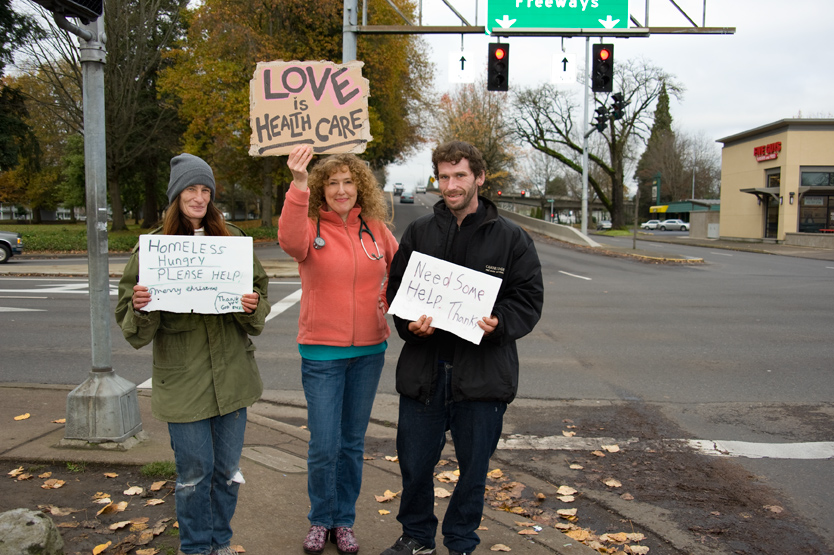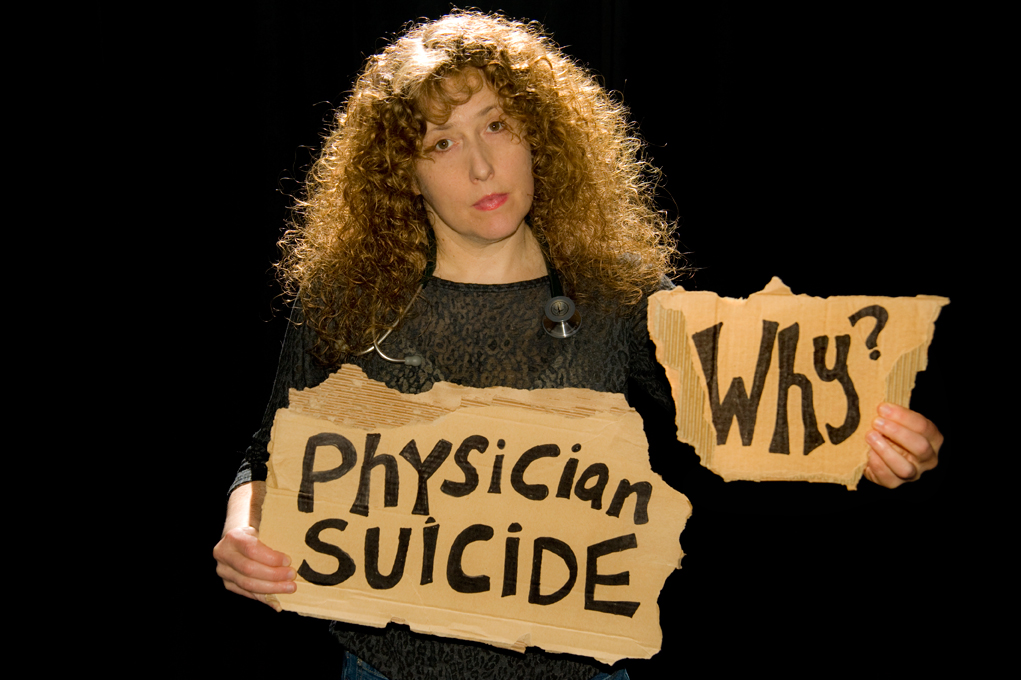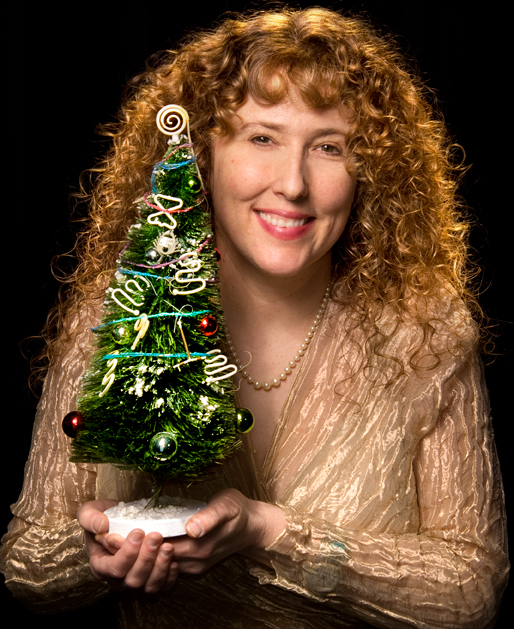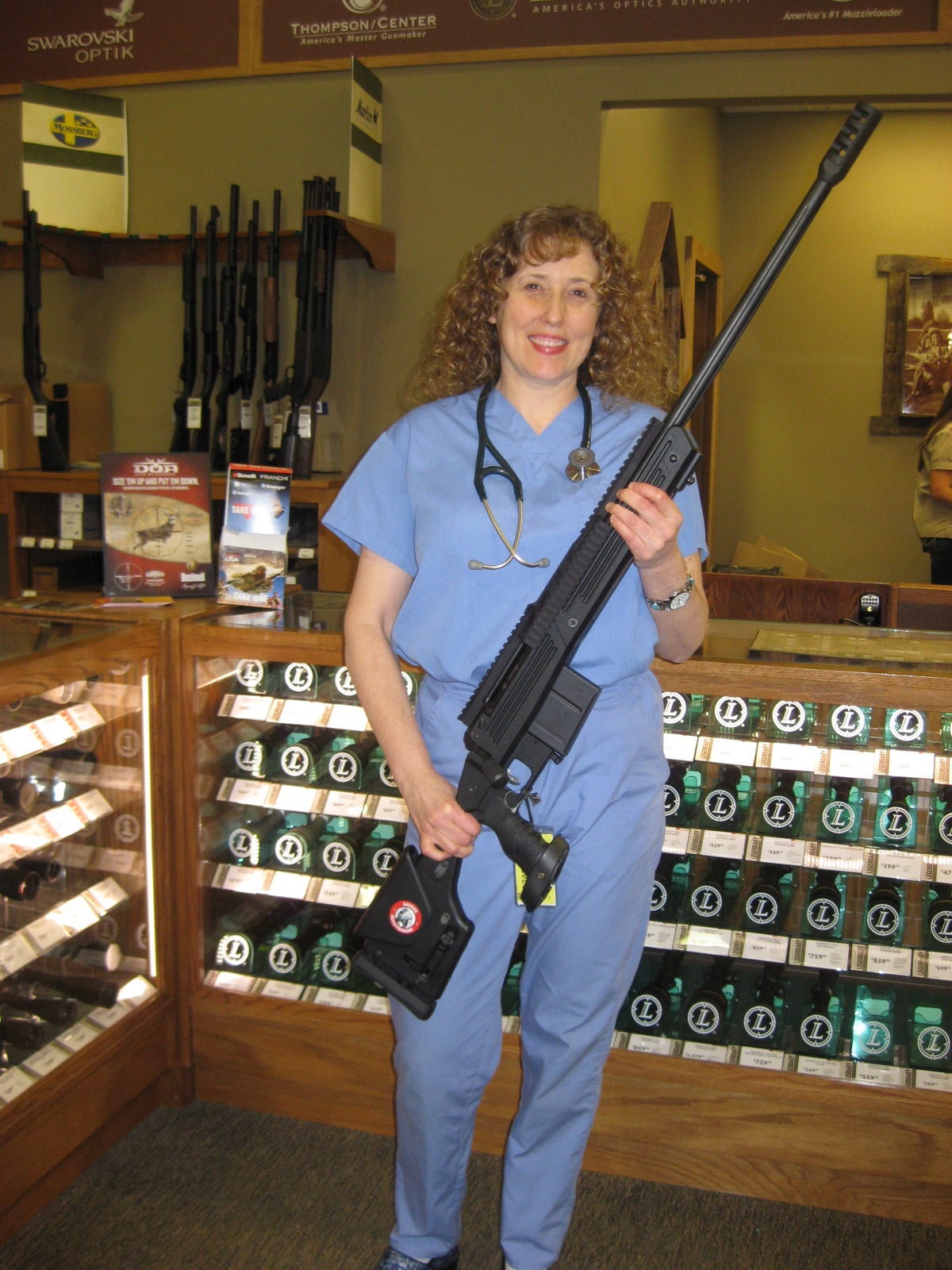 I pick up a Glock semiautomatic, the model used in the Virginia Tech massacre. I need to hold it, to feel it, to rub my finger across the trigger.
I pick up a Glock semiautomatic, the model used in the Virginia Tech massacre. I need to hold it, to feel it, to rub my finger across the trigger.
I don’t fear death. Raised in a morgue, I worked with my dad, the city medical examiner. As a kid, I watched autopsies and talked to dead people and made up heroic stories about their lives.
Now I’m moved by slaughtered innocence. But I can’t find peace–until today. Obsessed, I have to hold the Bushmaster AR-15, the model that killed those school kids. I need to feel the cold metal on my heart. I hug the gun, but still can’t feel all the pain. So I beg to hold the biggest, deadliest gun on display. When I look up, a crowd is smiling at me. I smile back. A doctor with an assault weapon makes people laugh.
Some things never make sense.
At today’s gun show, I’m offered assault weapons. No paperwork. I don’t even have to give my name.
Some guns are pink for girls. Some are really tiny. They all shoot–and kill. One seller mumbles, “Everybody wants something that will fit in their pocket and destroy the world.”
Providing health care in a country of gun lovers has its challenges.
In Oregon, rifles and shotguns are legal to own at 18. Handguns are legal at 21. I was 28, with 24 years of education, before I was legal to provide health care.
In Oregon, I don’t need a license to use my gun, but I do need a license to use my stethoscope.
To apply for my license, I had to submit a notarized application to the Oregon Medical Board with my birth certificate, medical diploma, photograph, fingerprints, national board exam transcript, and specialty board certificate, plus proof of internship, residency, and medical education with dean’s letter. I had to verify past employment, staff privileges, state licenses, and comply with a Federation Disciplinary Inquiry.
In Oregon, I don’t need to know how to read or write to buy a gun from a licensed dealer. My one-page background check can be legally filled out by just about anyone.
In Oregon, I don’t need a permit to use my gun, but I need permission to use my stethoscope–and that requires knowing how to read and write and complete pages and pages of documents. I had to account for all personal time since medical school, including nonmedical activities and vacations. I had to disclose all mental health treatment with names, dosages, and dates of my medications, plus names and addresses of my psychiatrists. Today, I don’t have to disclose any of that to get my gun.
In Oregon, I don’t need to register my gun. To provide health care I had to register and pay more than 1,000 dollars in fees to the Oregon Medical Board and Drug Enforcement Administration. Applications take 3 months or longer to process.
But there’s no waiting period for my gun. My instant background check takes less than 30 minutes and costs just 10 bucks. In Oregon, it’s easy to get a gun.
In Oregon, it’s easier to get an assault weapon than a doctor. In Oregon, our suicide rate is higher than national average, and physicians have the highest suicide rate of any profession. I’ve lost far too many colleagues. All men. Firearms are the method of choice. Some docs buy guns and kill themselves the same day. Receipt still in the bag.
Background check is done. Now one last decision: Bushmaster or Glock.

